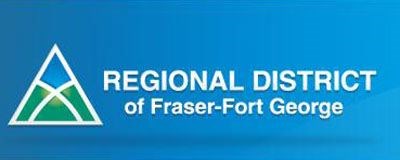Setting up an animal control officer in the rural areas would have to have the support of residents to move ahead, according to the regional district's chief administrator.
The Regional District of Fraser-Fort George doesn't have an animal control service in place, said Jim Martin, which leaves the RCMP as the main recourse for dealing with dangerous or nuisance dogs.
A section of the Community Charter grants local governments and peace officers authority to handle dangerous dogs, but Martin said it doesn't currently apply to them.
"It would tell us the kinds of things we could do if we had an animal control service in place to deal with dangerous dogs," Martin said.
The regional district isn't directly enabled under the Community Charter to undertake animal control, he said.
"With a lot of the services we deliver, if it's a fire department or a recreation service or something along those lines, we're empowered by the community who have petitioned us to put that service in place and we go through some type of a process of consultation with the community and engaging them and getting their approval in some form or another that they're willing to have the service and to pay for that service," said Martin.
The most recent example of this process is last summer's establishment of a new tax line for Willow River residents to support the new East Line Activity Centre attached to the new Giscome elementary school.
"We did a survey piece throughout the community to gauge if there was general support to do more work on it. And when we got that, [did] more work around what's it going to cost, what's the tax rate going to be, what is the service area, where the boundary is," Martin said. And then once all that was decided, then we went through a referendum process."
Reaction to dog control, like other issues in rural areas, is mixed, said Martin. "There are people that go 'you know what, we are not interested. We moved to the country because we don't want to be regulated and we don't want to be controlled by government,' and of course we have others that want to see a higher level of control."
Though he couldn't remember the exact date, there was a interest around animal control initiated more than a decade ago in the Pineview area, Martin said.
"So they had some initial discussions in the community and when they got down to the discussions around the level of service, what kind services would be provided and who was paying for it, interest was lost," he said.
Despite some complaints about dangerous dogs the regional district gets "on occasion," there hasn't been another attempt to establish an animal control service since then that Martin said he could recall. When issues arise, Martin said people are made aware of the tools available to them.


